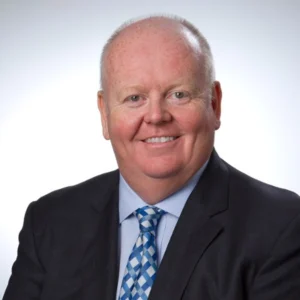
Canada’s Gambling Game Changer: Black Market Shakes Things Up
Hey, let’s unpack some big news from May 12, 2025—courtesy of a savvy reporter named Nicole Macedo.
Paul Burns, the head honcho at the Canadian Gaming Association, dropped a bombshell: the black market’s rise has shattered Canada’s old monopoly days. Grab a coffee; this story’s got twists from Ontario to Alberta and beyond.

Black Market Ends the Monopoly Era
Burns laid it out plain in a chat with GGB magazine:
“Because of the large unregulated iGaming market presence in Canada, no one’s had a monopoly for 25 years and that’s the reality.”
For over two decades, the shadowy online scene has eroded the stranglehold once held by provincial giants. Alberta’s just jumped into the fray with its iGaming Act, eyeing a regulated launch by mid-2026.
Only Ontario and Alberta have opened their doors to private players so far, leaving Burns urging the other eight provinces to ditch the old ways.
No Time to Rest for Regulators
The black market’s not slowing down, and Burns is sounding the alarm.
“There’s this whole discussion going on around sweepstakes and predictive markets in North America, [but] the next thing is already here, and there’s more coming,” he cautions. “As a regulator, there’s no time to pause anymore.”
He points to the 2000s’ high-speed internet boom and the 2010s’ smartphone surge as fuel for this grey market explosion, long before Ontario’s 2022 shake-up. Most of the remaining provinces—think British Columbia and Québec with their table games and lotteries, or Atlantic Canada’s lottery lock—still cling to legacy monopolies.
A Call for Tailored Solutions
Burns isn’t pushing a one-size-fits-all fix.
“We’re asking provinces to find their own solution. Alberta is going through a process. They’re going to learn a lot from Ontario, but they’re going to build something that ultimately works for their province and that’s what we encourage others to do,”
he adds.
It’s a DIY approach, with Québec and British Columbia already chatting with the Association about joining the regulated club.
Ontario’s Winning Playbook
Ontario’s story has Burns grinning. The province’s regulator pegged an 84% channelization rate in April, though H2 Gambling Capital nudges that to 93%, up from 83% in 2023. Yet, a snag: 20.2% of regulated site users still dabble in the black market. Still, Burns cheers the shift:
“One of the things Ontario did [well] was build a market that invited the grey market operators and made it advantageous” for them to join.
He sees Alberta following suit, aiming high.
“Alberta is clearly leading with strong measures of consumer protection. It’s this balance of being prepared to invest heavily in protecting your market and making it advantageous for people to join the regulated market. Ontario set a good bar, but we’re asking them to improve on that regulatory regime.”
With PlayAlberta’s current 20% channelization, change is brewing once private players step in—much like Finland’s Veikkaus revamp for 2027.
Tariff Troubles Stir the Pot
Then there’s the tariff tangle. Burns sighs over President Donald Trump’s 25% import tax on Canadian goods in February, prompting Alberta’s Gaming Liquor and Cannabis Commission to halt US gaming terminal buys by March 6. They now demand machines from Alberta-friendly suppliers or free-trade nations.
“It’s been an emotional debate in Canada because of the way President Trump has chosen to portray the relationship between Canada United States in the absence of facts,”
Burns notes.
“This impact is real for governments in the province, but also provinces are changing their procurement policies [and fighting back].”
With 70% of gaming machines sourced through provincial agencies, this could reshape how operators stock up—local might be the future.
What’s Next for Canada’s Gamblers?
This shake-up’s a wild ride. The black market’s forced a rethink, Ontario’s model tempts copycats, and tariffs add a curveball. I’m betting on more provinces jumping in, each crafting their own path.
What do you reckon—will Alberta outdo Ontario’s playbook? Keep an eye on this evolving scene.





